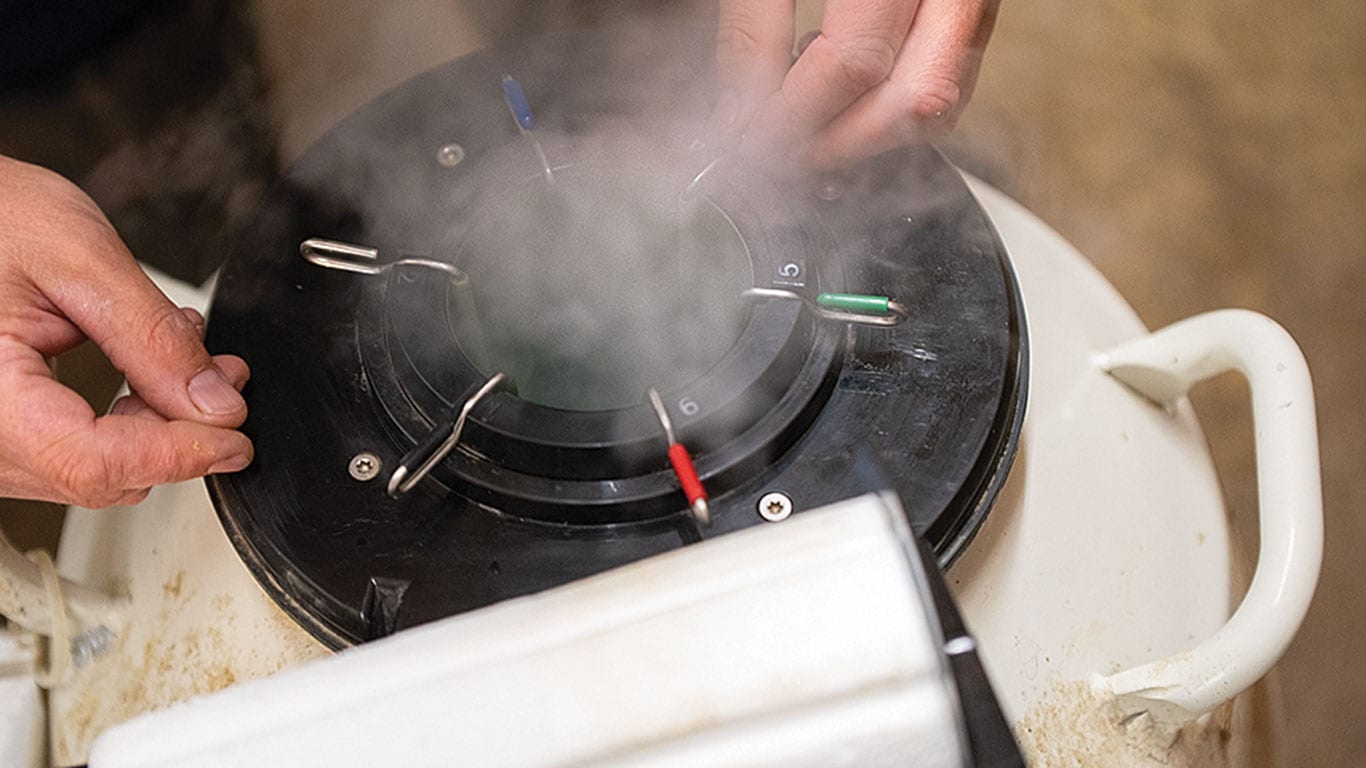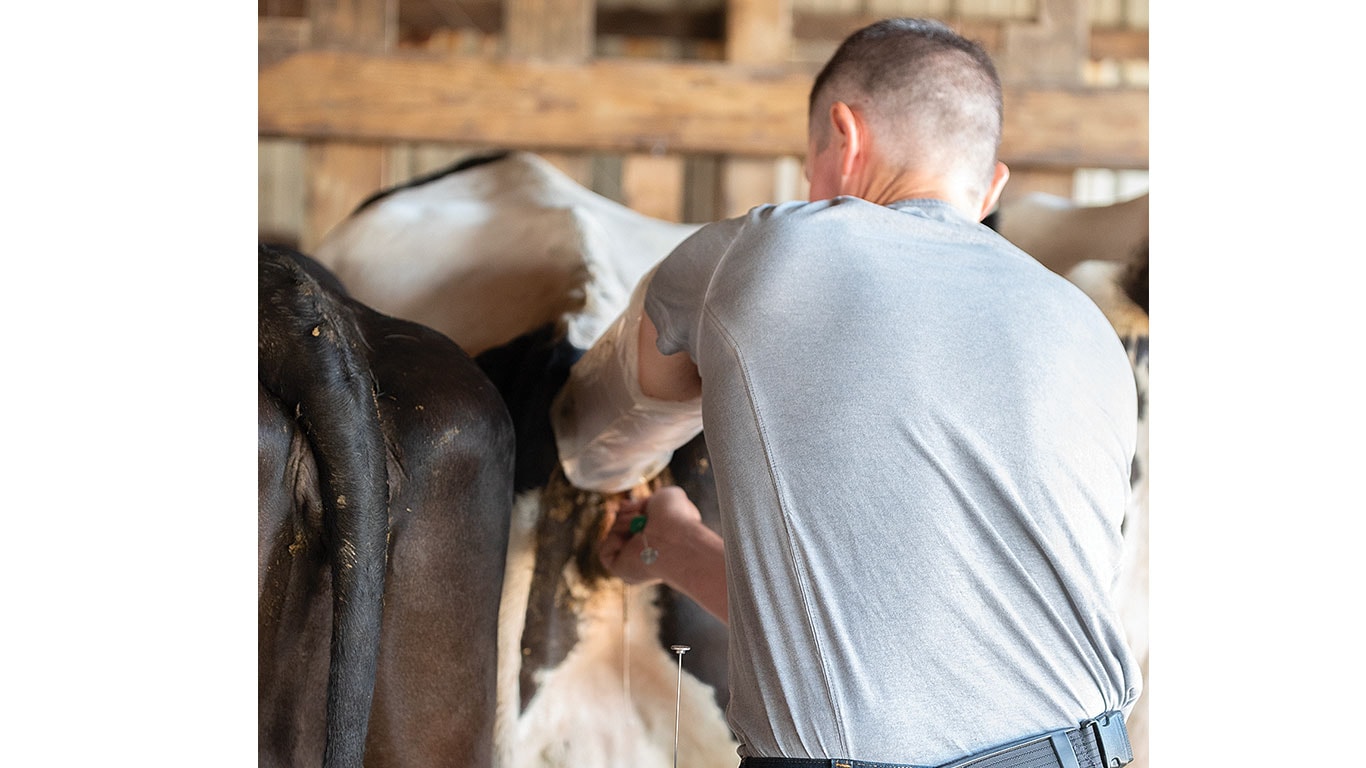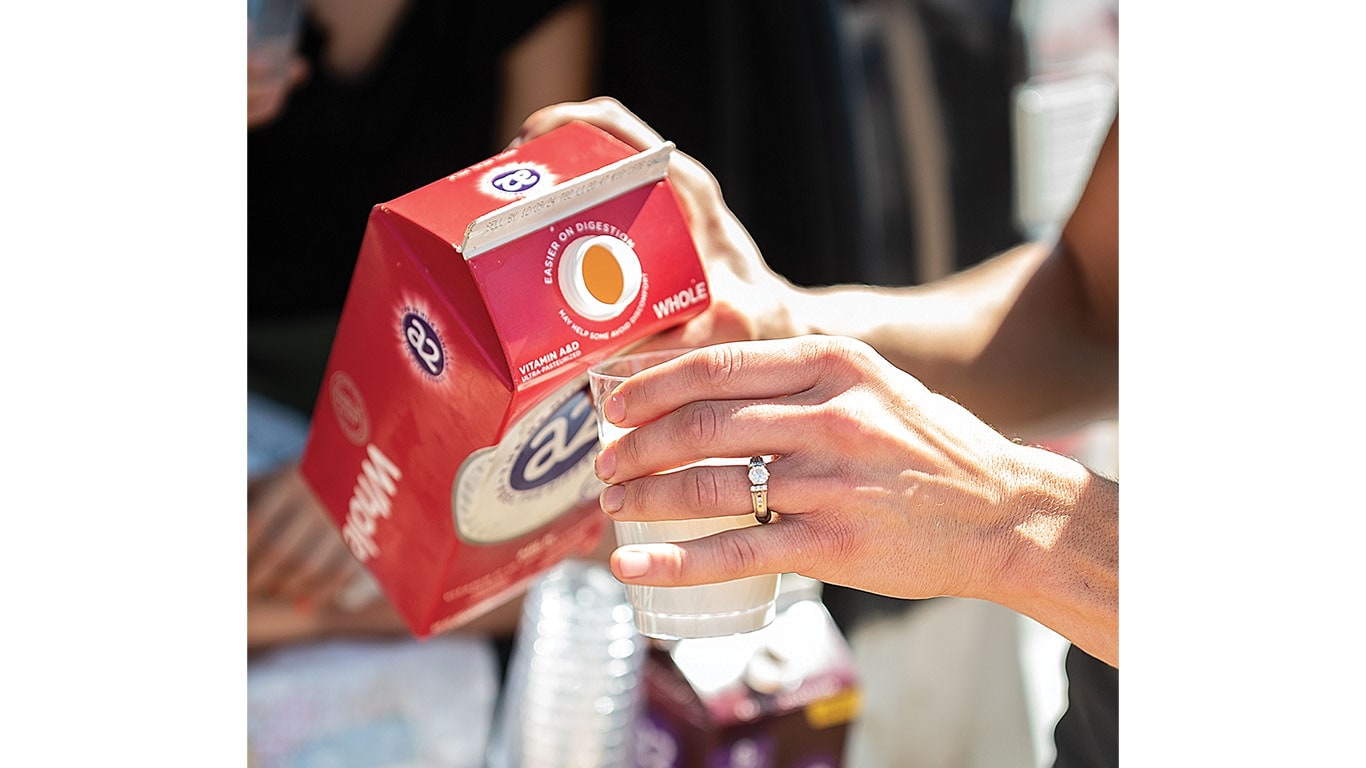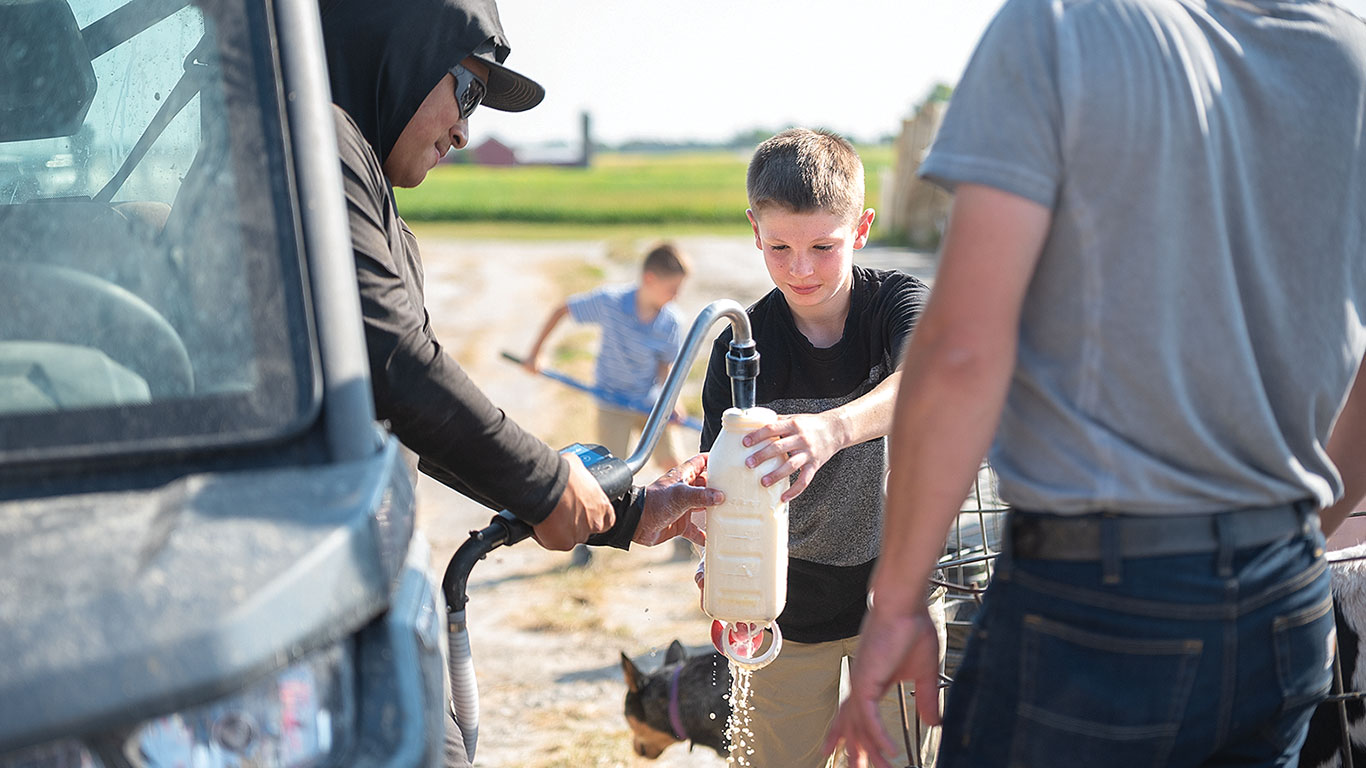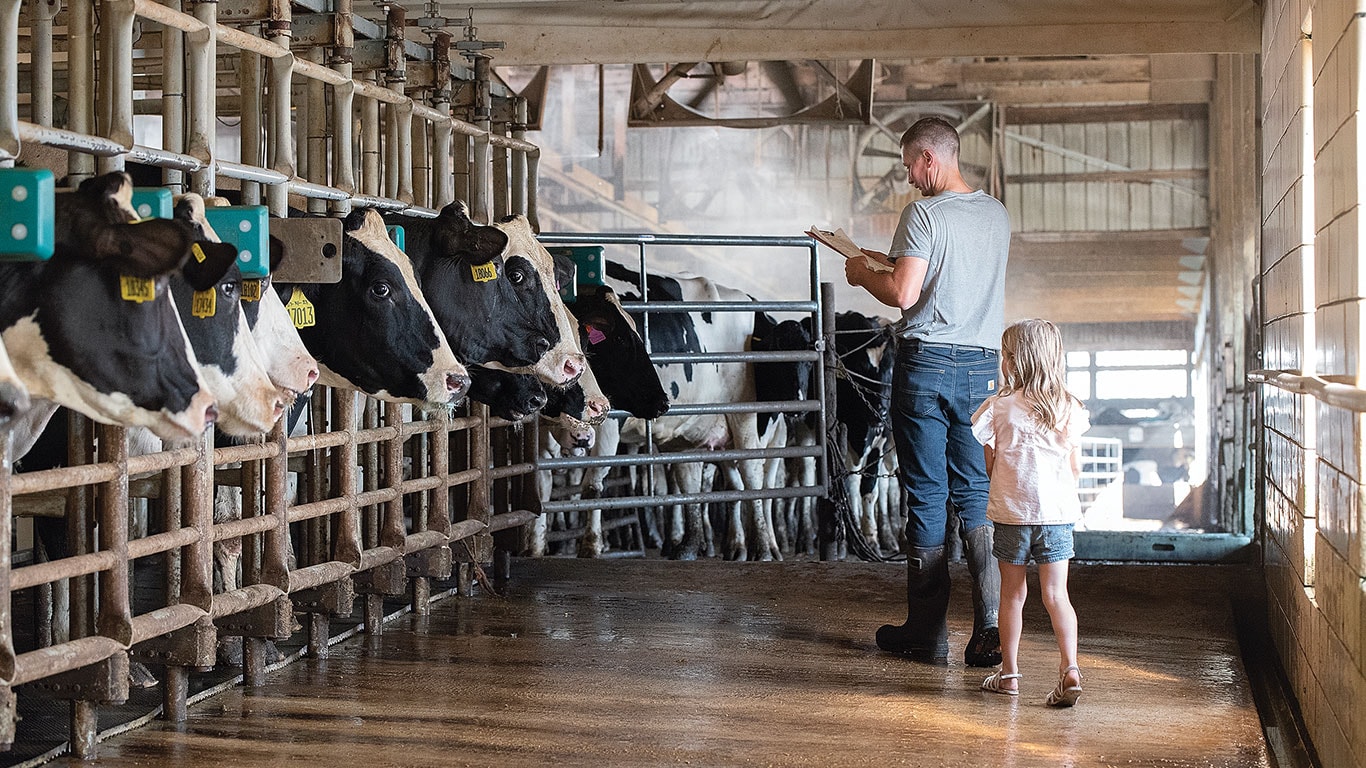Agriculture, Education November 01, 2025
The Protein Turning Heads and Herds
Story and Photos by Katie Knapp
Milk is milk, right? Wrong.
"The milk of the 1990s is not what we're making anymore. All milk nationwide now has far more solids—more cream and more protein—than it's ever had," explains Lucas Sjostrom, Minnesota Milk managing director.
More than breeding for higher quality milk and healthier cows, differences at the gene level allow dairy farmers to better supply consumer preferences including organic, grass-fed, or easier to digest like A2 milk.
A2 milk contains only the A2 beta-casein protein, while regular milk contains both A2 and A1 beta-casein. When A1 protein breaks down during digestion, it releases a peptide called beta-casomorphin-7 (BCM-7), which some people are sensitive to and can cause gastrointestinal discomfort.
The A2 story started in New Zealand more than 20 years ago when founders of The a2 Milk Company™ noticed children's eczema improved after switching from milk containing the A1 beta-casein. The company developed the genetic test for cows and quickly expanded into a global retail brand. Many other large retail and small niche brands have followed suit.
A new market study by Minnesota's Agricultural Utilization Research Institute (AURI) shows just how quickly A2 genetics are spreading: 44% of Minnesota dairy farmers surveyed have already converted their herds to A2 genetics, and another 35% are underway.
Dr. Brad Heins, University of Minnesota dairy researcher, predicts the entire dairy industry will likely be mostly A2 genetics within 10 to 20 years. "Since A2 genetics are now common in breeding programs, farmers are selecting A2 bulls when everything else is equal."
Austin Deardorff, an Indiana dairy farmer, never intended to become an A2 advocate. For years, he and his family bred A2 genetics into their herd as a hedge—"just for that small chance it does make a difference," he says.
His skepticism evaporated when his son developed digestive issues that disappeared if he drank A2 milk. Deardorff recalls, "when he didn't have problems anymore, I began to believe in the system."
Now they supply to The a2 Milk Company, and they are expanding. Austin and his brother Anthony recently acquired a Florida dairy operation to produce grass-fed, A2 milk year-round for the Southeast market.
"I never thought that our expansion would be outside of our comfort zone," he admits, referring to the big learning curve between a free-stall and rotationally grazed herd and the operational challenge of having three states in between.
Above. The purple tag is used to distinguish A2 from other dairy brands. They use semen from bulls tested to only carry the A2 gene and each cow is also tested for assurance.
Fact or just gut feeling? The rapid adoption of A2 genetics is happening despite limited scientific evidence proving if it really is easier to digest.
The confusion starts with understanding the difference between lactose intolerance (which is a sugar issue) and protein sensitivity or allergy.
Dr. Laura Olson, who practices rural family medicine and is co-owner of a Holstein herd, says, "The bottom line is, we need more studies to support the use of A2 milk in general. It sure has promise for those who have had good outcomes drinking it so far."
Someone already drinking lactose-free milk successfully probably won't benefit from A2 milk. But people who switched to plant-based alternatives because dairy "just doesn't agree with them" might find A2 milk brings them back to real dairy.
Olson hopes the dairy industry funds studies comparable to what the peanut industry has done to further understand allergies and intolerances. "We all should be drinking more milk because of the calcium and other nutrients real dairy provides," she says.
Above. Austin Deardorff's oldest son, Dane, couldn't drink regular milk, but he can drink A2 milk without issue. At the same time, The a2 Milk Company asked the Deardorffs to supply A2 milk to their Indiana processing plant. Demand has grown, and the family will begin also producing A2, grass-fed milk in Florida this year.
Looking ahead. Ben Laine, senior dairy analyst at Terrain™, sees A2 as part of a larger trend. "Milk has always struggled with being just a staple versus being a specialty, premium product. We're seeing a lot more differentiation now, especially with ultra-pasteurized products that have longer shelf lives."
AURI's survey data supports this optimism. A2 dairy product sales increased 161% from 2022 to 2024 across the North Central region. And A2 value-added products are growing even faster than fluid milk. Ice cream sales grew more than 300% annually from 2022-2024 while yogurt grew 160% in 2024 alone.
Add in the protein-focused nutrition movement—partly driven by GLP-1 medications that require eating a high protein diet—and dairy finds itself in a good spot.
Sjostrom hopes A2 is just the beginning. "There's like 10 more things we've found in genetics that may be more beneficial," he notes, pointing to kappa casein genes that could revolutionize cheese production.
"The market is asking for different types of milk, and we can do that now," Deardorff says. ‡
Read More

AGRICULTURE, EDUCATION
What the Weeds Say About Our Soils
Weeds have a story to tell, if we know how to read it.

AGRICULTURE, SPECIALTY/NICHE
Farm Naked
Naked barley is gaining ground…and fans.



